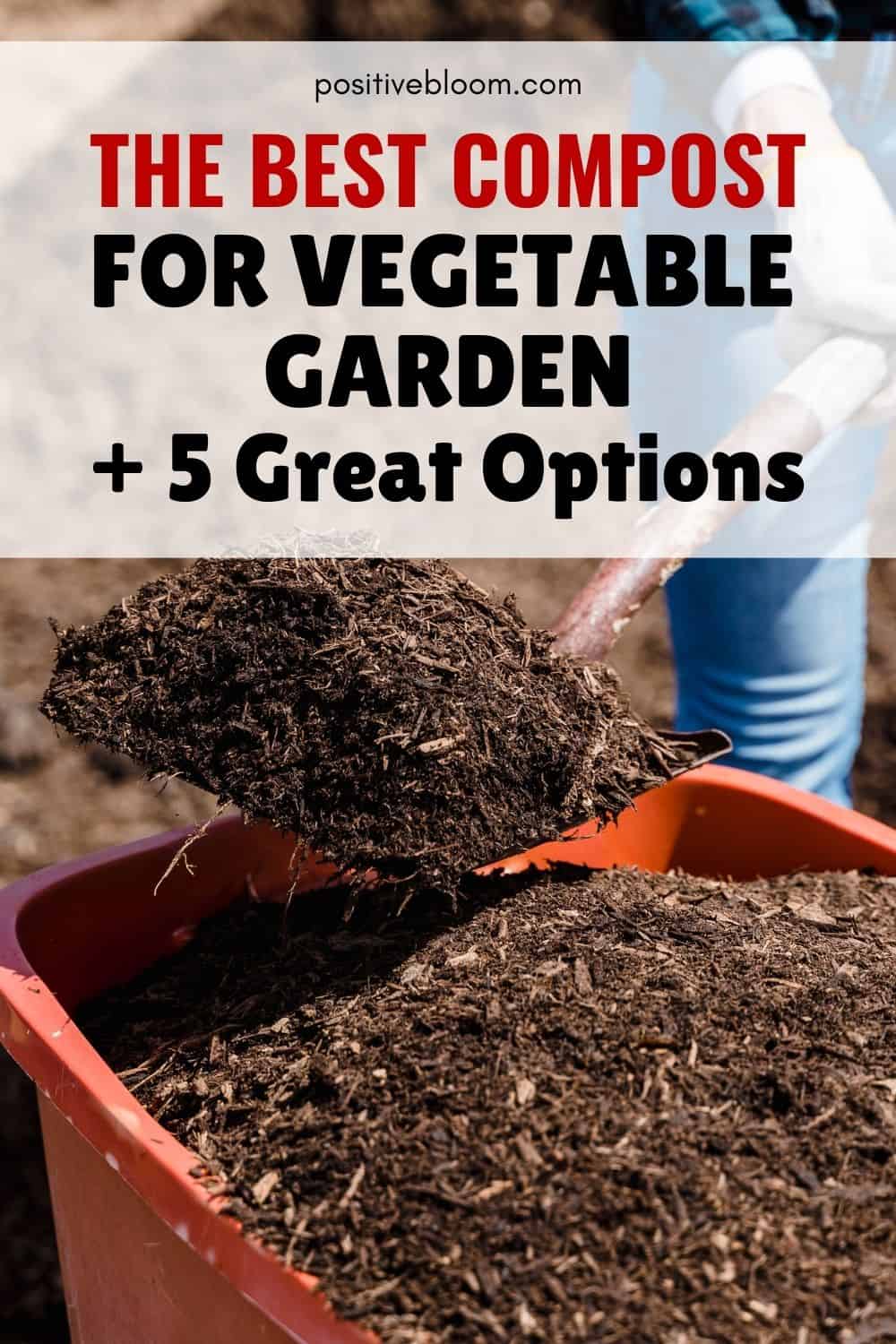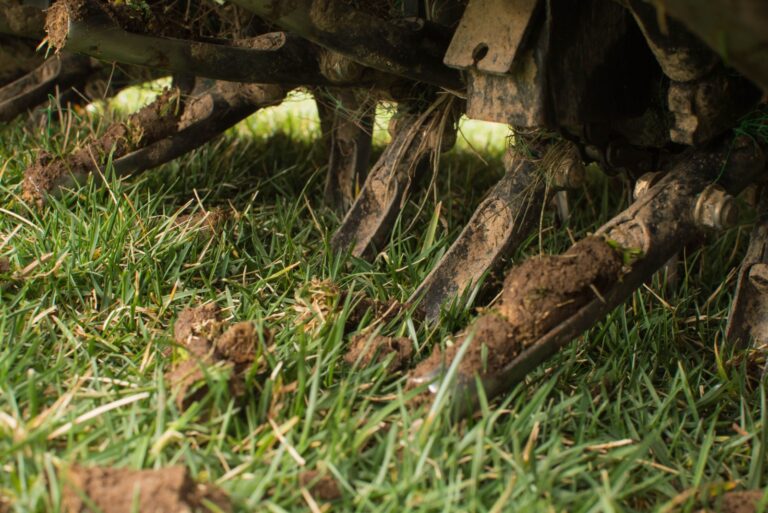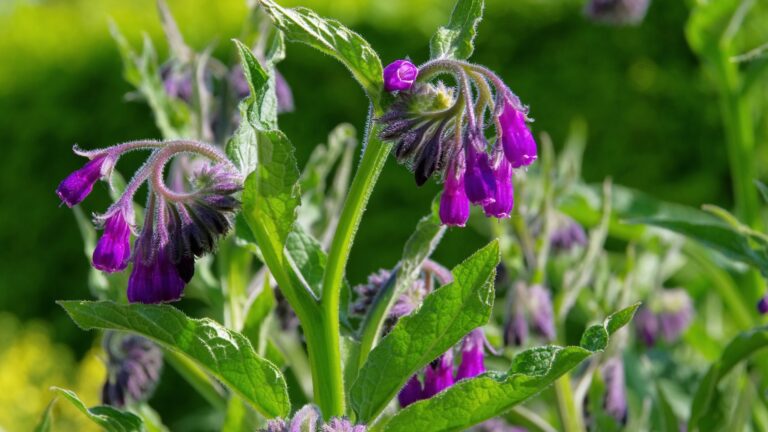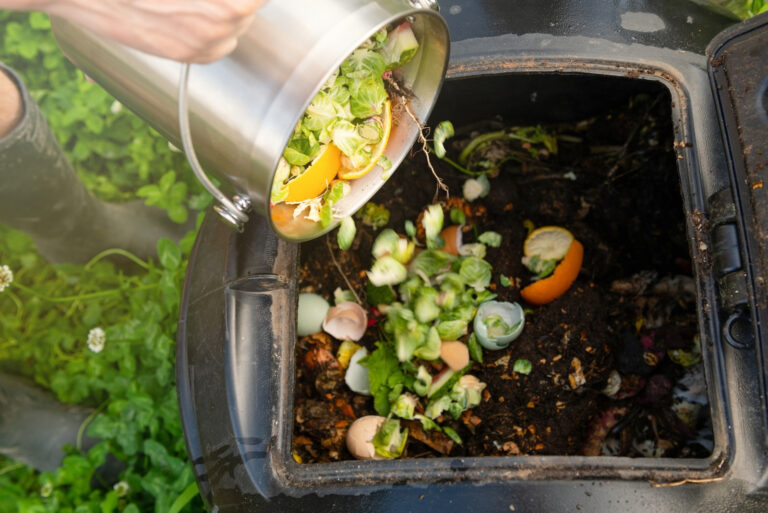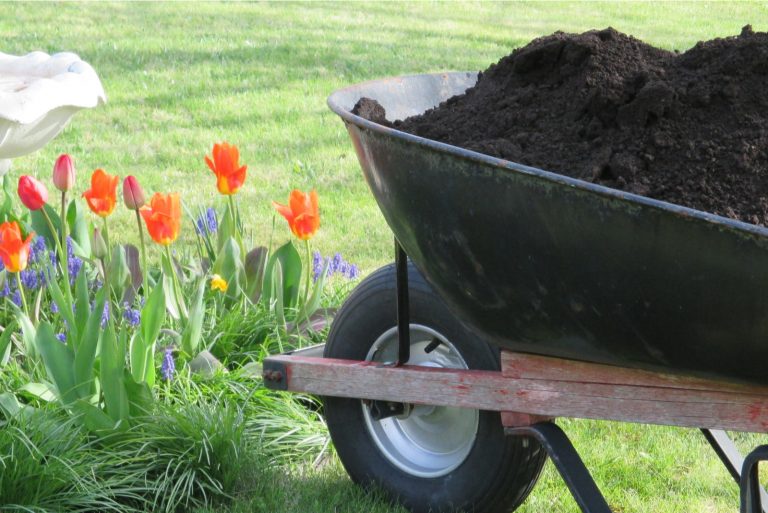The Best Compost For Vegetable Garden + 5 Great Options
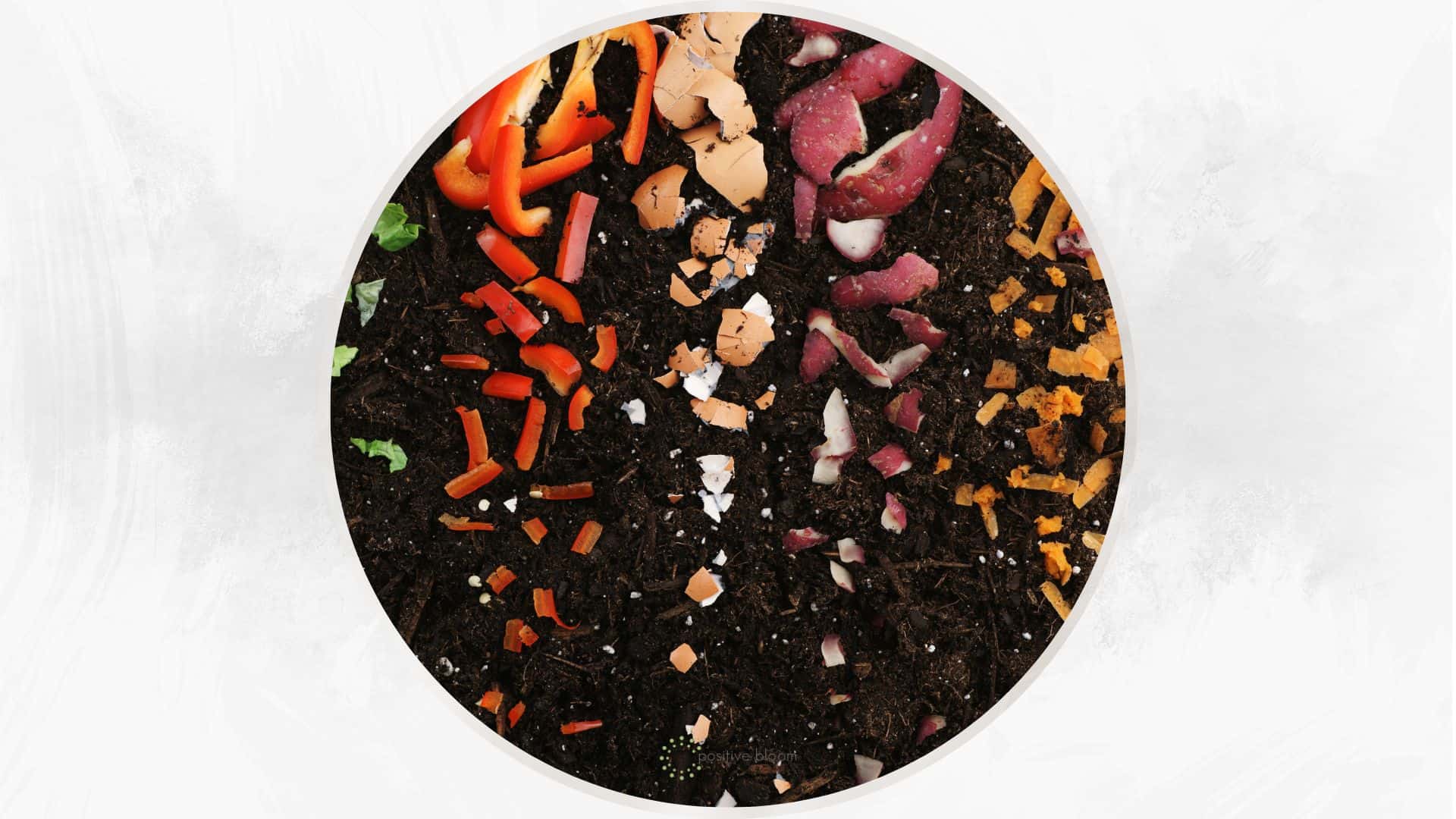
Positive Bloom is an Amazon Associate and we earn from qualifying purchases through these links at no extra cost to you.
Quality compost is the favorite soil amendment of many gardeners, whether they make one themselves or buy it in their local garden store.
This material improves soil structure and can help with drainage and aeration of clay substrates, and also enhance water retention of sandy growing mediums.
You can use it for potted plants, whether you keep them inside your home or outside, and you can even use it in your garden or raised beds.
But have you ever wanted to know what the best compost for vegetable garden is? Or maybe how to make it yourself?
We’ll discuss these questions in the following sections and bring you the five best products to enrich your garden with a lot of organic matter.
The Best Compost For Vegetable Garden
The best compost for vegetable garden would be an organic one that doesn’t contain any pesticides, herbicides, or synthetic chemicals and is rich in animal and plant waste.
Such material contains microorganisms that help decompose the organic materials in the soil and release valuable nutrients that your plants need to develop healthily.
You should also choose the best potting mix for vegetables to increase your yield tremendously.
The 4 Best Types Of Compost
There are four main types of compost: leaf clippings, manure, mushroom compost, and vermicompost. You can use all these varieties for your vegetable plants on their own or combine them to get the desired results.
For instance, it is quite popular to mix leaves and clippings with kitchen scraps such as plant waste, coffee grounds, etc., and create a unique compost that will provide all the nutrients your plants need.
There’s also a multi-purpose compost, but that’s not the best choice for vegetable plants since it decomposes very quickly. However, it is suitable for starting seeds and propagation, so don’t dismiss it too quickly.
And if you’re out of compost right now, you can always use peat moss to improve the soil structure or start seedlings (but you might want to mix it with some perlite in this case).
Leaves And Clippings
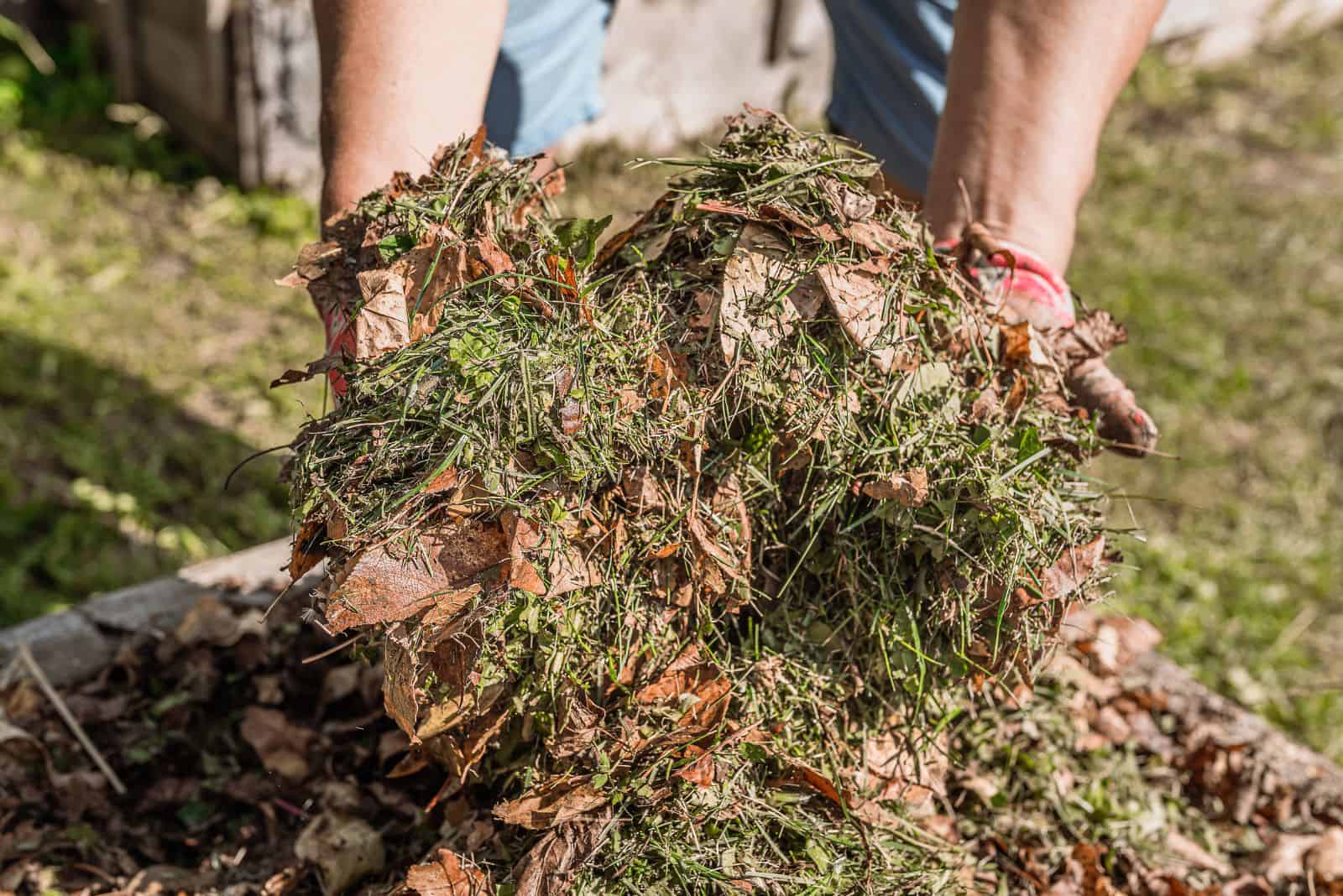
Using grass clippings, twigs, dried leaves, wood chips, etc., is one of the simplest ways of creating compost. You can lay them around your plants, and they’ll deliver vital nutrients as they break down.
You can also add all these ingredients to your compost pile and mix them with high-nitrogen ingredients such as chicken manure and coffee grounds.
The good thing about these ingredients is that they are cheap and organic (if you use chemical-free ingredients). Composting them reduces garden waste in an eco-friendly way, and you can use them as mulch and organic fertilizer.
However, these materials may contain weed seeds, especially if you use grass trimmings, so you might end up accidentally growing weeds with your veggies.
Manure
You can use two types of manure in your garden: animal manure and green manure. Animal manure contains all three macronutrients your plants need for healthy growth: nitrogen, phosphorus, and potassium.
You can use these organic ingredients on their own or you can add them to your compost bin. Just make sure to use only a little since it could burn your plants.
Green manure refers to plant waste and food scraps that you can simply bury into the garden soil or add to the compost pile.
Bear in mind that green manure isn’t as rich in nitrogen as it is animal manure, so take that into consideration when choosing the best compost for your garden.
Mushroom Compost
Mushroom compost is spent mushroom soil in which these edible fungi have grown, but isn’t fertile enough for the next batch.
Thankfully, you don’t have to throw it away because you can reuse it as compost for your vegetables since it consists of gypsum, straw, and manure. However, there are certain plant species that don’t like mushroom compost because this material has a high pH and is not suited to acid-loving plants.
Vermicompost
This type of compost is also called worm compost. Worms eat food scraps from the soil and excrete waste products (worm castings).
Gardeners use these castings as a natural fertilizer to boost the growth of their veggies and seedlings, as well as for seed germination.
You can make your own vermicompost by feeding the earthworms with organic material, or you can get ready-made products from Amazon or your local garden store.
How To Make DIY Compost
Making compost is pretty easy; mix some brown and green ingredients with water, and that’s it!
Common brown materials for compost include twigs, leaves, branches, wood chips, etc. Green ingredients are what we call yard waste, and plant material such as coffee grounds, animal manure, grass clippings, and kitchen scraps.
(And it can save you from tiresome trips to the landfill!)
Step 1. Use 1:1 brown and green materials, and start layering them into a pile.
Step 2. Water the ingredients as you go and mix them thoroughly.
Step 3. Add some soil or compost to introduce microbes that decompose the organic matter and boost the process.
Step 4. Turn the compost pile every day during the first week and then every other day for two more weeks.
I know you’re all dying to know how long it takes to make compost! Well, the composting process usually takes about three months from start to finish.
Pro tip: Turn the pile regularly, or else the grass will turn into a mud-like material that you won’t be able to use.
You can also use animal manure or Jobe’s Organics compost starter from the link below to jump-start this entire process:
Here are some more tips for making homemade compost:
When To Use Compost
If you want perfect soil that’s rich in nutrients and has optimal drainage, aeration, and moisture retention, you should add some compost to your garden bed.
The best time to use compost in organic gardening (and any other gardening) is in spring and fall. This material decomposes slowly and ensures a steady supply of nutrients to all types of plants.
Can You Use Too Much Compost?
Actually, yes, you can use too much compost in raised beds and vegetable gardens.
Compost is highly rich in salts, but if you use it excessively, you may risk toxic runoff contaminating the underground waters and overfertilizing your plants.
Too much compost can lead to mineral build-up in the plant, so it stops absorbing moisture and nutrients.
What To Look Out For When Buying Compost
When buying compost, ensure that it is loose and fluffy instead of damp and compacted. Also, this material shouldn’t contain any plastic, glass, metal, or other similar ingredients.
Another thing that can help you choose high-quality compost for your garden is its smell. Fresh compost has almost a sweet and earthy fragrance, whereas a bad one gives off a rotting ammonia smell.
And yes, it’s okay for compost to contain some earthworms, but flies and maggots are definitely a red flag.
You can also look at the ingredients box and ensure it has plenty of organic ingredients. And finally, we always opt for organic variants without pesticides because they will not hurt your plants.
5 Great Bagged Compost Varieties
When choosing an amendment to make nutrient-rich soil, it’s always good to explore your options. Therefore, understanding the differences between compost and fertilizer will get you a long way.
Compost changes the soil structure, whereas fertilizers simply add more nutrients to the growing medium. So, if your garden soil only needs nutrients, you can get an organic fertilizer such as bone or kelp meal.
However, if your substrate needs more drainage or water retention, then you should get one of the compost varieties from below.
[table id=556 /]
1. Fishnure Fish Manure Humus Compost
This product is soil-amending humus made from fish manure. It will feed any type of plant for a long time because it contains microbes that help with decomposition and provide plenty of nutrients.
Fishnure compost increases aeration, drainage, and water retention and introduces vital nutrients to the soil.
It is easy to apply and doesn’t have an unpleasant odor, so you can use it for all your landscaping projects.
2. Blue Ribbon Organics OMRI Certified Organic Compost
This is a multifunction production that you can use to improve soil structure and replenish nutrients as a top dressing for your lawn or mulch.
This product is OMRI listed, which means it passed the inspection of the Organic materials review institute, so it’s entirely safe for all gardens.
You can mix it with other worm castings and other soil builders, and you can use it at any concentration.
It also maintains optimal pH levels of the soil and doesn’t have an unpleasant odor, which makes this a favorite product of many growers.
3. Garden Magic Compost And Manure
This compost is perfect for top-dressing your lawn when overseeding and will help you get rid of those brown, bare, and unsightly patches.
You can use this product as mulch or to amend your native soil. It provides all the nutrients your plants need and doesn’t have a bad smell.
It’s also incredibly easy to use and comes in a 40-pound bag, so you’ll have more than enough to improve the soil structure in your vegetable garden or raised beds.
4. Mountain Valley Seed Earth Worm Castings
This odorless product is an excellent substitute for cow manure if you want a better-smelling soil builder.
It is rich in microbes and nutrients (nitrogen, phosphorus, potassium, calcium, and magnesium), and slowly releases them into the growing medium, ensuring a constant supply of valuable minerals.
This earthworm castings compost always maintains a neutral pH level and is suitable for indoor plants.
It reduces the risk of plant diseases, improves aeration, drainage, and moisture retention, and feeds your plants at the same time.
This product also comes with instructions for making an earthworm tea so that you can release nutrients more quickly. You can use the tea every day or only occasionally, depending on your plants’ needs.
Finally, it increases the harvest and may even keep your plants safe from aphids, mites, and whiteflies.
5. R&M Organics Premium Organic Compost
This high-quality product will ensure you get the most out of your plants. It is rich in all necessary nutrients, improves drainage, water retention, and aeration, and you can use it on lawns, garden beds, and new plants.
It is 100% organic, has no foul odor, and comes with instructions on how to use it.
However, it may stain your patio, so make sure to use it where it won’t affect your landscape.
FAQ
We have discussed the most important factors regarding the best compost for vegetable garden, but we still need to go through a few other things.
We found some of your most frequently asked questions about this subject and will answer them in the following sections.
Can I grow vegetables in 100% compost?
You shouldn’t grow vegetables in compost alone because it won’t retain much moisture, can’t provide suitable texture to support the roots, and will lead to overfertilization.
If you want to use compost for growing veggies, mix it with garden soil, and your plants will have everything they need.
You can also use compost to start seeds, and in this case, you don’t have to mix it with anything. That’s because seeds and young seedlings won’t topple. After all, they don’t have excessive roots, and you can simply mist them more frequently to replenish moisture that way.
What is the difference between compost and topsoil?
The main difference between compost and topsoil is that we use compost as a soil amendment, whereas topsoil acts more as a landscape filler.
Both materials contain organic matter, although compost is more nutritious, so we can use it as a form of fertilizer.
We can use compost as a growing medium as well, whereas topsoil usually serves as a means to build up the soil level.
Final Thoughts
The best compost for vegetable garden has a loose and fluffy texture, is rich in nutrients, and doesn’t contain any chemicals.
In the article above, we examined different types of compost so that you can choose which one is perfect for your plants (and is the easiest for you to make).
We also brought an easy recipe that will make you wonder why on earth you didn’t compost sooner!
We examined when you should use it and included five top products in case you don’t have homemade compost just yet.
Enjoy your new composting hobby, and until next time:
Like this post? Share or pin it for later!
